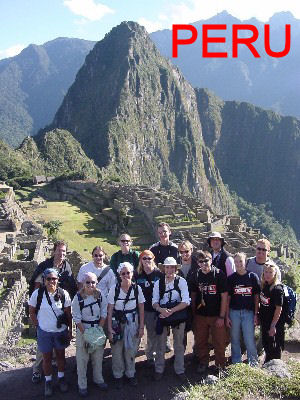In today’s world, students need to have a global perspective with respect to geopolitical issues, economic issues, social and human rights issues, and environmental issues. This is no less true for their major disciplines. Many Biology majors study abroad. As with any other major, most tend to seek programs that offer a new cultural experience while at the same time offering them an opportunity to take courses in their major taught under a different educational system. We encourage our majors to take advantage of this great opportunity, but they must plan their schedule early to allow for such an opportunity.
Any student wishing to study abroad should first contact the Center for International Studies Office (http://www.wfu.edu/cis/) to get course information about the program to which he/she wants to apply. Then the student should bring the course information including syllabus to Dr. Wayne Silver, who will advise the student regarding whether his/her selection of courses meets the Biology department’s requirements for transfer credit. If approved, courses taught in non-Wake Forest programs come in as transfer courses and may be applied to the major. Courses taught in Wake Forest programs are considered regular Wake Forest courses; thus they count automatically toward the major (Biology majors may also take courses in other Wake Forest and non-Wake Forest programs that do not have a biology component).
Most Biology majors choose to study abroad during the fall semester of their junior year, although any semester following the completion of the freshman year can work with careful planning. Once a major has completed the core (Biology 114, 113, 213 and 214) he/she should be able to handle higher level courses taught in an overseas program.
Our majors have studied in a variety of locations around the world. Wake Forest offers programs in London, Venice, Vienna, Salamanca in Spain, and Dijon in France. On occasion, these programs are led by faculty from the Department of Biology, offering students the opportunity to take upper division Biology courses in these programs ghostwriter diplomarbeit. The Department of Biology offers summer programs in Peru, Australia, and Tanzania.
Summer Programs offered by faculty in the Department of Biology
In the past, substantial financial assistance (up to $2000 tutoring-statistik.de) has been available from the Sullivan Fund (a Biology Department fund for students doing field courses or field research), as well as funds from the International Studies Center (~ $1000) for summer programs.
Tropical Biodiversity. ( BIO 349) 4hrs. An intensive field course in tropical biodiversity. Students will travel to major tropical biomes, including deserts, glaciated peaks and rain forests. Lectures emphasize the basic ecological principles important in each ecosystem; laboratories consist of student-designed field projects. Course location varies yearly ghostwriter bachelorarbeit. P—BIO 112 and 113 and POI. Offered in the summer only. Contact Dr. Miles Silman silmanmr@wfu.edu x-5596, 134 Winston Hall
Ecology and Resource Management of Southeast Australia (BIO 356) 4 hrs.
The Australia course, from May 19th – June 13th, consists of four modules which focus on rainforest ecology, coral reef ecology and management (at the Great Barrier Reef), Australian outback and aboriginal culture, and urban environment of Brisbane. This program is field oriented with extensive travel through the ecosystems of eastern Australia. It is a four credit hour course for which you can receive credit in Biology (Bio 356) and it can count as an elective for the Environmental Science and Environmental Studies minors. The logistics, such as in-country transportation, lodging and many of the meals are provided by the American Universities International Program (AUIP). Offered in the summer only ghostwriter deutschland. Contact Dr. Robert Browne brownera@wfu.edu x-5569, 243 Winston Hall.
Savanna Ecology & Conservation (BIO 344) 4hrs. An intensive field course offering an in-depth study of the ecology and conservation of African savannas. The course will emphasize savanna structure and function, ecological determinants of the savanna biome and co-evolutionary relationships between plants and large mammalian herbivores. Includes 3 weeks in Tanzania (2 in Serengeti National Park) – Minimum one year of college biology including BIO 113 and POI ghostwriter agentur. Offered in the summer only. Contact Dr. Michael Anderson
anderstm@wfu.edu x-5974, 206 Winston Hall.



